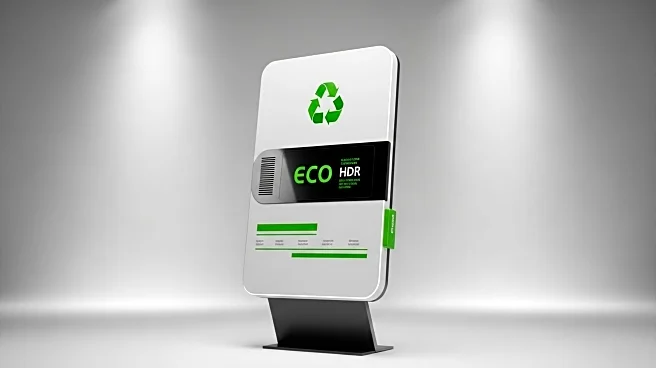What is the story about?
What's Happening?
Xeriant, Inc., a company focused on advanced materials and transformative technologies, has announced the successful completion of its September production run for NEXBOARD, an eco-friendly composite construction panel. This production marks the beginning of the certification process, with samples provided to prospective clients in the construction industry. A representative from the certification testing agency was present to document the manufacturing process and quality control procedures. NEXBOARD is designed to support green building certifications and align with circular economy objectives, constructed primarily from recycled plastic and fiber waste. The panel offers exceptional durability and resistance to fire, water, mold, insects, cracking, and abrasion, making it suitable for replacing traditional building panels.
Why It's Important?
The green construction materials market is projected to reach USD 1.8 trillion by 2030, driven by increasing demand for sustainable materials like NEXBOARD. This development addresses the construction industry's significant resource consumption and CO2 emissions. Xeriant's NEXBOARD is strategically positioned to meet these evolving demands, offering a sustainable alternative to conventional building materials. The certification process is crucial for validating the product's performance and expanding its market reach, potentially influencing industry standards and practices.
What's Next?
The next step for Xeriant is to complete the certification tests, which are being scheduled at the lab. Successful certification will enable broader adoption of NEXBOARD in the construction industry, potentially leading to partnerships and increased production. As the demand for eco-friendly materials grows, Xeriant may explore further innovations and expansions in its product line to maintain its competitive edge.
Beyond the Headlines
The development of NEXBOARD highlights the growing importance of sustainable practices in construction, reflecting broader environmental and economic shifts. The use of recycled materials and nanotechnology in construction panels may set new benchmarks for durability and environmental impact, influencing future regulations and consumer preferences.
















